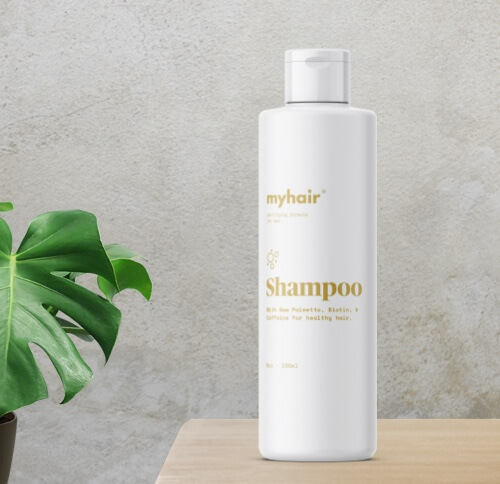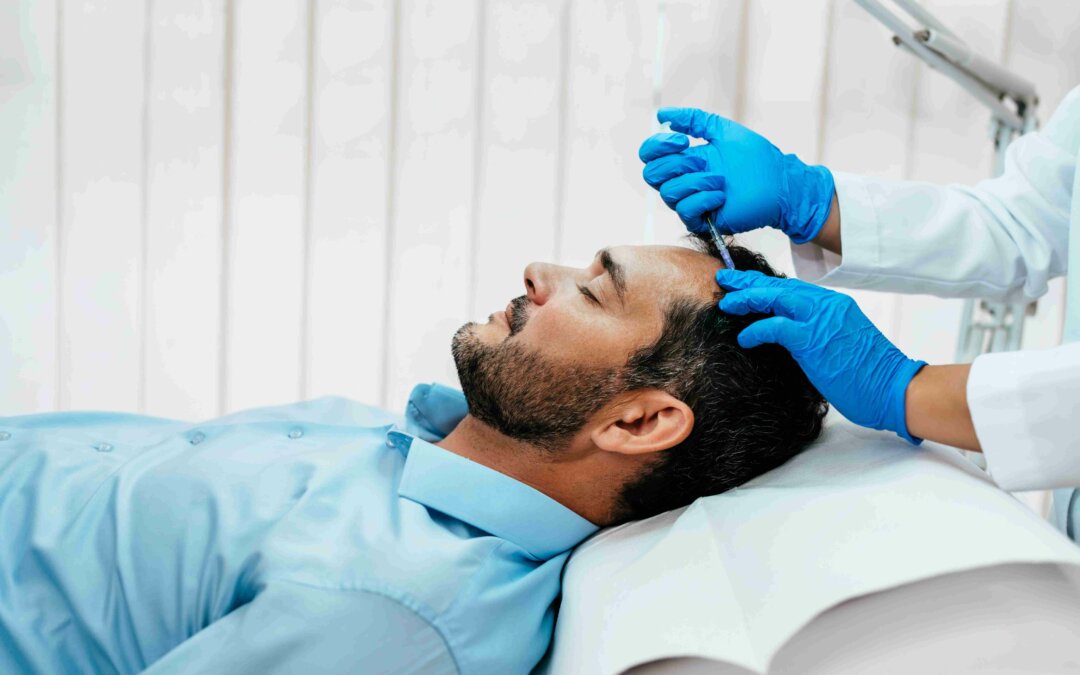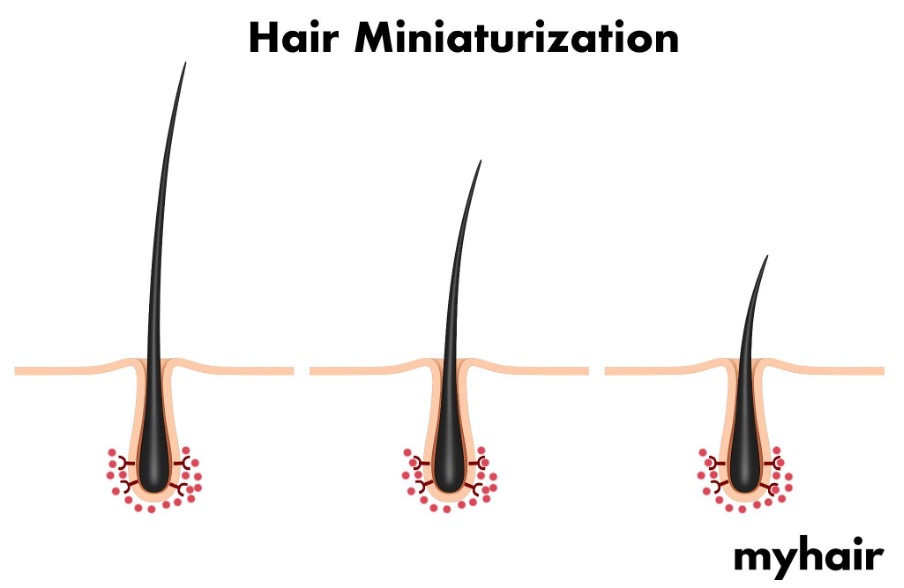Do you drink a hot cup of coffee or tea every morning? Or if you’re not a fan of either of those, do you ever drink iced tea, coke, hot chocolate, or Red Bull? According to a study in the New England Journal of Medicine, 85 percent of American adults consume some form of caffeine each day.
Caffeine is much more than a stimulant that can help you get up in the morning. This chemical has a myriad of health benefits. You can find it in a range of different items, from headache and pain medications to hair products, like shampoo.
While that might sound a bit strange, using caffeine on your scalp and hair is actually very sensible. This chemical has properties that help counteract androgenic alopecia (pattern baldness), the most common form of hair loss.
Can you use caffeine shampoo for hair loss?
These days, caffeine is an increasingly common ingredient in shampoos and other hair products. It might sound crazy, but using caffeine to improve hair growth is not such a weird idea. This chemical has actually been studied in relation to hair loss for decades.
According to studies in the Journal of Applied Cosmetology and the Skin Pharmacology and Physiology journal, caffeine is known to help boost cell metabolism and proliferation. This allows it to act as a dihydrotestosterone (DHT) blocker. DHT is the main hormone involved in the progression of pattern hair loss.
Unlike other medications for hair loss, caffeine can be absorbed by hair follicles in as little as 2 minutes, making it ideal for use in a hair product like shampoo. Regular use over multiple months has shown improvements in scalp health and hair strength, as well as reductions in hair loss. And if you shower in the morning, the fast absorption means you actually get part of your morning fix while shampooing your hair.

Caffeine, saw palmetto, and many other powerful DHT blockers — all in one shampoo.
How to use caffeine for hair growth
If you’re thinking about using caffeine for hair loss, it might not be a bad idea to use other caffeinated hair products, too. For example, the Skin Pharmacology and Physiology article mentioned one study where a caffeinated hair lotion was just as effective as minoxidil, a pattern hair loss treatment approved by the Food and Drug Administration (FDA).
Of course, one study isn’t enough to prove that caffeine is just as good or better than minoxidil. However, the same article also mentioned the success of using both minoxidil and topical caffeine for pattern hair loss. While not yet FDA-approved as a combination treatment, several studies have shown that using both minoxidil and topical caffeine can be an effective way to counteract the progression of androgenic alopecia.
Choosing a caffeine shampoo
According to the article in Skin Pharmacology and Physiology, caffeine can come from over 60 different types of plants and can also be synthetically produced. This means you can find this chemical in your expensive all-natural organic hair products, as well as your cheap dollar store caffeine shampoos and conditioners.
If all you care about is the chemical, natural caffeine and synthetic caffeine are technically equivalent to one another. Both of them should technically have the same effect on your body and your hair. The only real difference is that synthetic caffeine can usually be produced at a cheaper cost. However, the other ingredients in those shampoos might make a big impact on your hair.
All-natural shampoos are more likely to contain additional beneficial ingredients that can boost hair health. According to a study in the Natural Products and Bioprospecting journal, these include plant-based products like licorice extract and grapeseed oil, natural DHT blockers like saw palmetto, and antioxidant-rich ingredients like rosemary.
You might also find green tea on your all-natural caffeine shampoo’s ingredient list. Green tea can be both the source of caffeine and an additional beneficial compound, epigallocatechin-3-gallate (EGCG), an antioxidant and DHT blocker.
In contrast, cheaper caffeine shampoo and other caffeine hair products are more likely to have a number of questionable and potentially carcinogenic ingredients. A study in the Skin of Color journal says that this includes ingredients like parabens, triethanolamine, tetrasodium EDTA, and some mineral oils.
If you’re hoping to use caffeine shampoo to improve your hair, you particularly want to watch out for one very common ingredient: sulfates. The study in the Skin of Color journal says that many sulfates remove too much sebum from your scalp and dissolve oil from your hair. This can cause your hair to become rough, dull, fragile, and more likely to tangle. Using detrimental ingredients like these can counteract all of the benefits caffeine provides.
Can I use topical caffeine for hair loss?
Coffee, tea, energy drinks, sodas, and a number of other beverages are known to contain caffeine. However, this stimulant can also be found in a wide range of hair products and is a particularly popular ingredient in shampoos.
High-quality caffeine can come from a number of different sources. The best caffeine hair products will lack questionable ingredients, like sulfates, parabens, triethanolamine, tetrasodium EDTA, and mineral oils. They’ll also contain multiple ingredients known to be helpful to hair, like licorice and rosemary, as well as all-natural DHT blockers like saw palmetto and EGCG.
Caffeine shampoo has been found to have great effects on hair when used regularly, improving hair strength and reducing hair loss. Topical caffeine hair products also work well when combined with minoxidil, an FDA-approved treatment for pattern hair loss.





